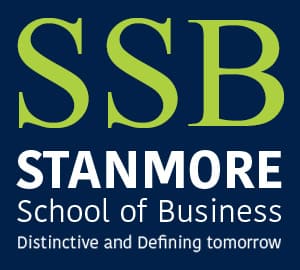Bridging the Skills Gap in Finance: How Professional Certificate in Investing in Emerging Markets Made a Difference
Published on June 26, 2025
About this Podcast
HOST: Welcome to our podcast, today we have a special guest who will be sharing their insights about bridging the skills gap in finance, particularly in the field of investing in emerging markets. Can you tell us a little bit about your background and how you got involved in this area? GUEST: Absolutely, I have over 15 years of experience in finance and have always been fascinated by the unique challenges and opportunities in emerging markets. I've seen firsthand the importance of having a solid understanding of the specific skills required to succeed in this field. HOST: That's great. And can you tell us a little bit about the course you taught, "Professional Certificate in Investing in Emerging Markets"? What motivated you to create this course and what sets it apart from others in the field? GUEST: Certainly. I noticed a significant skills gap in the finance industry when it came to investing in emerging markets. This course was designed to address that gap by providing learners with the necessary tools and insights to succeed in this field. It stands out because it combines theoretical foundations with practical applications, giving learners a well-rounded understanding of the subject matter. HOST: Interesting. And what current industry trends are relevant to this course? How does the course stay up-to-date with the latest developments in the field? GUEST: The course covers topics such as the impact of technology on emerging markets, the role of ESG (Environmental, Social, and Governance) factors in investing, and the importance of understanding cultural nuances when investing in different regions. We regularly update the course content to ensure it remains relevant and current. HOST: That's great to hear. Now, what challenges did you face while teaching this course and how did you overcome them? GUEST: One challenge was ensuring that learners at different levels of experience could benefit from the course. To overcome this, we included both beginner and advanced content, allowing learners to tailor their learning experience to their needs. Additionally, we provided real-world examples and case studies to help learners better understand the practical applications of the course material. HOST: That's a great approach. Finally, where do you see the future of investing in emerging markets, and how do you think this course can contribute to that future? GUEST: I believe investing in emerging markets will continue to be a critical area of growth in the finance industry. This course can contribute to that future by equipping learners with the skills and knowledge they need to succeed in this field, ultimately driving growth and innovation in emerging markets. HOST: Thank you so much for sharing your insights with us today. It's been a pleasure having you on the podcast, and we're sure our listeners have gained valuable knowledge from this conversation. GUEST: Thank you for having me. It's been a pleasure sharing my experiences and insights with your audience.
